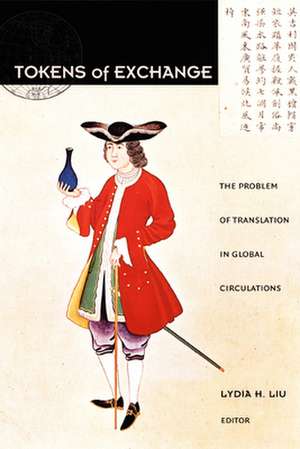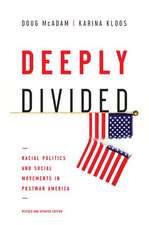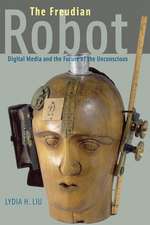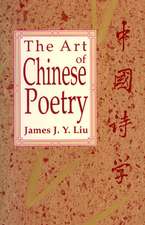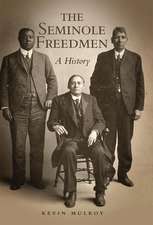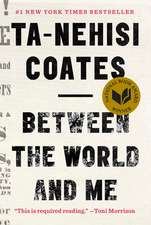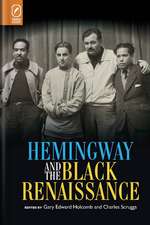Tokens of Exchange – The Problem of Translation in Global Circulations: Post-Contemporary Interventions
Autor Lydia H. Liuen Limba Engleză Paperback – 18 ian 2000
By studying the production and circulation of "meaning as value" in areas including history, religion, language, law, visual art, music, and pedagogy, essays consider exchanges between Jesuit and Protestant missionaries and the Chinese between the seventeenth and nineteenth centuries and focus on the interchanges occasioned by the spread of capitalism and imperialism. Concentrating on ideological reciprocity and nonreciprocity in science, medicine, and cultural pathologies, contributors also posit that such exchanges often lead to racialized and essentialized ideas about culture, sexuality, and nation. The collection turns to the role of language itself as a site of the universalization of knowledge in its contemplation of such processes as the invention of Basic English and the global teaching of the English language. By focusing on the moments wherein "meaning-value" is exchanged in the translation from one language to another, the essays highlight the circulation of the global in the local as they address the role played by historical translation in the universalizing processes of modernity and globalization.
The collection will engage students and scholars of global cultural processes, Chinese studies, world history, literary studies, history of science, and anthropology, as well as cultural and postcolonial studies.
"Contributors." Jianhua Chen, Nancy Chen, Alexis Dudden Eastwood, Roger Hart, Larissa Heinrich, James Hevia, Andrew F. Jones, Wan Shun Eva Lam, Lydia H. Liu, Deborah T. L. Sang, Haun Saussy, Q. S. Tong, Qiong Zhang
Din seria Post-Contemporary Interventions
-
 Preț: 194.51 lei
Preț: 194.51 lei -
 Preț: 159.67 lei
Preț: 159.67 lei -
 Preț: 203.54 lei
Preț: 203.54 lei -
 Preț: 264.26 lei
Preț: 264.26 lei -
 Preț: 210.08 lei
Preț: 210.08 lei -
 Preț: 310.83 lei
Preț: 310.83 lei -
 Preț: 239.54 lei
Preț: 239.54 lei -
 Preț: 258.90 lei
Preț: 258.90 lei -
 Preț: 241.11 lei
Preț: 241.11 lei -
 Preț: 312.96 lei
Preț: 312.96 lei -
 Preț: 299.29 lei
Preț: 299.29 lei -
 Preț: 335.51 lei
Preț: 335.51 lei -
 Preț: 307.74 lei
Preț: 307.74 lei -
 Preț: 231.22 lei
Preț: 231.22 lei -
 Preț: 239.54 lei
Preț: 239.54 lei -
 Preț: 266.77 lei
Preț: 266.77 lei -
 Preț: 265.20 lei
Preț: 265.20 lei -
 Preț: 309.49 lei
Preț: 309.49 lei -
 Preț: 229.09 lei
Preț: 229.09 lei -
 Preț: 266.55 lei
Preț: 266.55 lei -
 Preț: 300.06 lei
Preț: 300.06 lei -
 Preț: 308.72 lei
Preț: 308.72 lei -
 Preț: 305.61 lei
Preț: 305.61 lei -
 Preț: 266.77 lei
Preț: 266.77 lei -
 Preț: 238.99 lei
Preț: 238.99 lei -
 Preț: 209.85 lei
Preț: 209.85 lei -
 Preț: 262.32 lei
Preț: 262.32 lei -
 Preț: 203.18 lei
Preț: 203.18 lei -
 Preț: 262.91 lei
Preț: 262.91 lei -
 Preț: 240.35 lei
Preț: 240.35 lei -
 Preț: 203.56 lei
Preț: 203.56 lei -
 Preț: 264.82 lei
Preț: 264.82 lei -
 Preț: 210.08 lei
Preț: 210.08 lei -
 Preț: 300.06 lei
Preț: 300.06 lei -
 Preț: 306.99 lei
Preț: 306.99 lei -
 Preț: 265.97 lei
Preț: 265.97 lei -
 Preț: 195.41 lei
Preț: 195.41 lei -
 Preț: 211.04 lei
Preț: 211.04 lei -
 Preț: 221.33 lei
Preț: 221.33 lei -
 Preț: 266.47 lei
Preț: 266.47 lei -
 Preț: 310.08 lei
Preț: 310.08 lei -
 Preț: 303.11 lei
Preț: 303.11 lei -
 Preț: 232.87 lei
Preț: 232.87 lei -
 Preț: 268.46 lei
Preț: 268.46 lei -
 Preț: 301.97 lei
Preț: 301.97 lei -
 Preț: 267.70 lei
Preț: 267.70 lei -
 Preț: 267.15 lei
Preț: 267.15 lei -
 Preț: 203.34 lei
Preț: 203.34 lei -
 Preț: 311.22 lei
Preț: 311.22 lei -
 Preț: 201.99 lei
Preț: 201.99 lei
Preț: 307.58 lei
Nou
Puncte Express: 461
Preț estimativ în valută:
58.87€ • 63.97$ • 49.49£
58.87€ • 63.97$ • 49.49£
Carte tipărită la comandă
Livrare economică 21 aprilie-05 mai
Preluare comenzi: 021 569.72.76
Specificații
ISBN-13: 9780822324249
ISBN-10: 0822324245
Pagini: 464
Dimensiuni: 168 x 234 x 27 mm
Greutate: 0.65 kg
Ediția:New.
Editura: MD – Duke University Press
Seria Post-Contemporary Interventions
ISBN-10: 0822324245
Pagini: 464
Dimensiuni: 168 x 234 x 27 mm
Greutate: 0.65 kg
Ediția:New.
Editura: MD – Duke University Press
Seria Post-Contemporary Interventions
Cuprins
CONTENTS
List of illustrations; Acknowledgments
IntroductionLydia H. Liu, University of California, Berkeley
1 The question of meaning-value in the political economy of the sign
Lydia H. Liu, University of California, Berkeley
Part I: Early encounters: the question of (in)commensurability
2. Translating the untranslatable: from copular to incommensurable worlds
Roger Hart, Stanford University
3. Demystifying Qi: the politics of cultural translation and interpretation in the early Jesuit missions to China
Qiong Zhang,
4. Always multiple translations or how the Chinese language lost its grammar
Huan Saussy
Part II: Colonial circulations: from international law to the global market
5. Legislating the universal: the circulation of international law in the nineteenth century
Lydia H. Liu, University of California, Berkeley
6. Japans engagement with international terms
Alexis Dudden Eastwood, Connecticut College
7. Looting Beijing 1860, 1900
James Hevia, University of North Carolina, Chapel Hill
8. The gramaphone in China
Andrew Jones, University of Washington
Part III: Science, medicine and cultural pathologies
9. Handmaids to the Gospel: Lam Quas medical portraiture
Larissa Heinrich, University of California, Berkeley
10. Translating homosexuality: the discourse of Tongxing Ai in Republican China (1912-1949)
Debbie T. L. Sang, University of Oregon
11. Translating psychiatry and mental health in twentieth-century China
Nancy Chen, University of California, Santa Cruz
Part IV: Language and the production of universal knowledge
12. The bathos of a universalism: I. A. Richards and his basic English in China
Q. S. Tong, University of Hong Kong
13. Chinese Revolution in the syntax of world revolution
Jianhua Chen, Harvard University
14. The question of culture in global English language teaching
Wan Shun Eva Lam, University of California, Berkeley
Glossary; Bibliography
List of illustrations; Acknowledgments
IntroductionLydia H. Liu, University of California, Berkeley
1 The question of meaning-value in the political economy of the sign
Lydia H. Liu, University of California, Berkeley
Part I: Early encounters: the question of (in)commensurability
2. Translating the untranslatable: from copular to incommensurable worlds
Roger Hart, Stanford University
3. Demystifying Qi: the politics of cultural translation and interpretation in the early Jesuit missions to China
Qiong Zhang,
4. Always multiple translations or how the Chinese language lost its grammar
Huan Saussy
Part II: Colonial circulations: from international law to the global market
5. Legislating the universal: the circulation of international law in the nineteenth century
Lydia H. Liu, University of California, Berkeley
6. Japans engagement with international terms
Alexis Dudden Eastwood, Connecticut College
7. Looting Beijing 1860, 1900
James Hevia, University of North Carolina, Chapel Hill
8. The gramaphone in China
Andrew Jones, University of Washington
Part III: Science, medicine and cultural pathologies
9. Handmaids to the Gospel: Lam Quas medical portraiture
Larissa Heinrich, University of California, Berkeley
10. Translating homosexuality: the discourse of Tongxing Ai in Republican China (1912-1949)
Debbie T. L. Sang, University of Oregon
11. Translating psychiatry and mental health in twentieth-century China
Nancy Chen, University of California, Santa Cruz
Part IV: Language and the production of universal knowledge
12. The bathos of a universalism: I. A. Richards and his basic English in China
Q. S. Tong, University of Hong Kong
13. Chinese Revolution in the syntax of world revolution
Jianhua Chen, Harvard University
14. The question of culture in global English language teaching
Wan Shun Eva Lam, University of California, Berkeley
Glossary; Bibliography
Recenzii
"This impressive volume expands the metaphor of translation to encompass a broad spread of transcultural negotiations, thereby opening new possibilities for approaching the language and practices of East Asian modernities. The volume presents exemplary models for demonstrating the historicity of how concepts travel and become caught up within localized sign systems." - Ann Anagnost, author of National Past-Times: Narrative, Representation, and Power in Modern China
"This impressive volume expands the metaphor of translation to encompass a broad spread of transcultural negotiations, thereby opening new possibilities for approaching the language and practices of East Asian modernities. The volume presents exemplary models for demonstrating the historicity of how concepts travel and become caught up within localized sign systems." - Ann Anagnost, author of National Past-Times: Narrative, Representation, and Power in Modern China
"This impressive volume expands the metaphor of translation to encompass a broad spread of transcultural negotiations, thereby opening new possibilities for approaching the language and practices of East Asian modernities. The volume presents exemplary models for demonstrating the historicity of how concepts travel and become caught up within localized sign systems." - Ann Anagnost, author of National Past-Times: Narrative, Representation, and Power in Modern China
Notă biografică
Textul de pe ultima copertă
"This volume brilliantly translates 'translation' by theorizing it and demonstrating the contingency, historicity and political inflections of the practices that have constituted it. Specific attention to a series of examples from China and the diverse encounters with European knowledges show that the Universal is always particular."--Paul Rabinow, University of California, Berkeley
